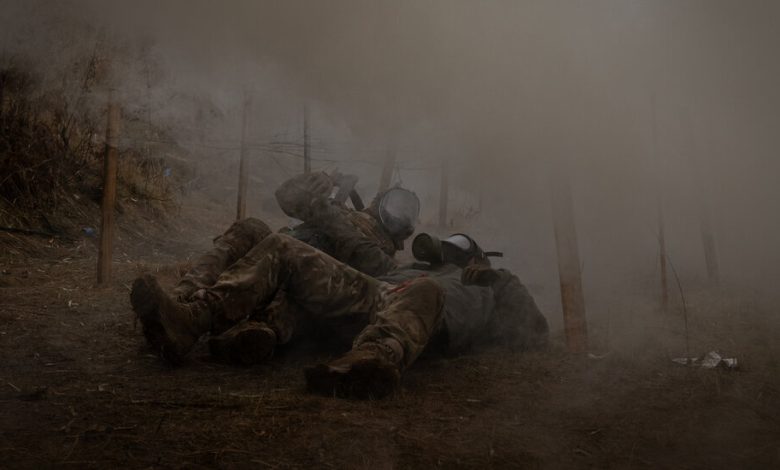U.S. Accuses Russia of Using Chemical Weapons in Ukraine

The United States has accused Russia of using chemical weapons, including poison gas, “as a method of warfare” against Ukrainian forces, in violation of a global ban on the use of such weapons.
The State Department said in a statement on Wednesday that Russia had used chloropicrin, a “choking agent” widely used during World War I, as well as tear gas, against Ukrainian troops. The use of these gases in warfare is banned under the Chemical Weapons Convention, an arms control treaty ratified by more than 150 countries, including Russia.
“The use of such chemicals is not an isolated incident and is probably driven by Russian forces’ desire to dislodge Ukrainian forces from fortified positions and achieve tactical gains on the battlefield,” the State Department said. Russia this year has been slowly but steadily pushing through Ukrainian defenses in the east, capturing several towns and villages.
The State Department also said that the United States would impose sanctions on three state entities linked to Russia’s chemical and biological weapons programs and four companies that support them.
Anatoly Antonov, Russia’s ambassador to the United States, called the accusations that Russian forces had used chemical weapons “odious and unsubstantiated” in a post on the Telegram messaging app.
The Ukrainian authorities have reported hundreds of cases of suspected chemical weapons use on the battlefield by Russia since the full-scale invasion began in February 2022, and that the rate has accelerated as Moscow presses ahead with attacks along the front line.
Lt. Col. Artem Vlasiuk, an expert in the Ukrainian army department that deals with nuclear, chemical, biological and radiological security, said that about 250 cases of suspected chemical weapons use by Russian forces had been reported in February, about five times the number in March 2023.
He said that most of the chemical substances used in the attacks had been identified as CS gas, a tear gas most commonly used by riot police to control crowds.
Although governments use tear gas for domestic law-enforcement purposes, it is considered a chemical weapon when used in warfare, according to the Organization for the Prohibition of Chemical Weapons, an implementing body of the Chemical Weapons Convention. Civilians can usually escape tear gas during protests, but soldiers in trenches have little choice but to flee under enemy fire or risk being suffocated.
Gyunduz Mamedov, Ukraine’s deputy prosecutor general, said last week that the Russian army had used tear gas against Ukrainian troops at least 900 times in the past six months, with more than 1,400 incidents reported since the start of the war.
In addition to tear gas, the State Department said that Russian forces had used chloropicrin, a choking agent that irritates the nose, throat and the lungs when inhaled and can cause nausea and vomiting.
Ukrainian army officials have said that the chemicals are usually contained in grenades that Russian forces throw at Ukrainian positions, forcing soldiers out of their fortified positions. Ukrainian troops have a dearth of adequate protective equipment against chemical attacks, such as gas masks.
The State Department said that Russia’s disregard for its obligations under the Chemical Weapons Convention “comes from the same playbook” as its operations to poison Aleksei Navalny, the Russian opposition leader who died in a Russian prison in February, and Sergei Skripal, a former Russian spy who acted as a double agent for Britain, with Novichok nerve agents.
Foreign ministers assembled at a Group of 7 summit last month said in a statement that “any use of chemical, biological or nuclear weapons by Russia would be met with severe consequences.”
Carlotta Gall and Oleksandr Chubko contributed reporting.



